Solutions for Advanced Automotive Injection Molding Techniques
As the automotive industry continues to evolve towards sustainable and efficient manufacturing practices, the role of automotive injection molding becomes increasingly pivotal. According to a report by MarketsandMarkets, the global automotive injection molding market is expected to reach $30.68 billion by 2025, growing at a CAGR of 6.5% from 2020 to 2025. This growth is driven by the demand for lightweight materials that improve fuel efficiency and reduce emissions, alongside advanced techniques that enhance production capabilities and material utilization.

The future of automotive injection molding lies in integrating innovative technologies such as automation, advanced polymers, and smart manufacturing practices, which not only streamline production processes but also boost the precision and quality of automotive components. As manufacturers seek to adapt to these advancements and maintain competitive advantages, exploring solutions that address the complexities of contemporary automotive injection molding will be crucial.
Innovative Materials: Enhancing Injection Molding for Automotive Applications
The automotive industry is undergoing a transformative shift, driven by advancements in injection molding techniques. Innovative materials are at the heart of this evolution, offering enhanced performance and efficiency for automotive applications. The adoption of advanced polymers and composites is enabling manufacturers to produce lightweight, high-strength components that meet the demanding standards of modern vehicles. These materials not only improve fuel efficiency but also contribute to the reduction of greenhouse gas emissions, aligning with the industry's push towards sustainability.
In addition, the burgeoning market for materials such as iron powder and specialized composites supports the ongoing growth of the automotive sector. With the global iron powder market projected to reach $1.78 billion in 2024 and continue expanding, it's clear that the demand for high-quality materials is only set to increase. As manufacturers invest in innovative solutions and collaborative research, breakthroughs in injection molding will facilitate the production of safer, more reliable vehicles that can meet the challenges of the future. This synergy between advanced materials and injection molding techniques is essential for shaping the next generation of automotive technology.
Precision Engineering: Techniques to Improve Mold Design Efficiency
In the fast-evolving automotive industry, precision engineering is paramount to enhancing mold design efficiency. According to a report by MarketsandMarkets, the global market for automotive injection molding is projected to reach $40 billion by 2025, driven by the increasing demand for lightweight materials and complex geometries. Employing advanced techniques such as computer-aided design (CAD) and simulation software can significantly improve mold designs, reducing lead times and costs.

Furthermore, the integration of additive manufacturing in mold design is revolutionizing the industry. A study published by MIT indicates that the use of 3D printing technologies in mold-making can decrease production time by up to 60%. This not only accelerates the prototyping phase but also allows for more intricate designs that can cater to specific automotive requirements. By adopting these advanced automotive injection molding techniques, manufacturers can achieve greater efficiency and precision in their mold designs, ultimately leading to enhanced performance of automotive components.
Smart Technologies: Integrating IoT and AI in Injection Molding Processes
The integration of IoT and AI in injection molding processes represents a significant leap forward in automotive manufacturing. By harnessing the power of IoT, manufacturers can create interconnected systems that monitor production lines in real-time. This connectivity enables instant data collection from machines, providing insights into performance metrics, predictive maintenance needs, and quality control. With these insights, manufacturers can swiftly address issues before they escalate, thereby minimizing downtime and enhancing overall efficiency.
AI enhances this process further by analyzing the vast amounts of data generated by IoT devices. Machine learning algorithms can identify patterns and predict outcomes, allowing for smarter decision-making during the injection molding process. For instance, AI can optimize mold designs and parameters based on historical data, leading to improved material usage and reduced waste.
This synergy between IoT and AI not only streamlines production but also supports the industry's move towards sustainable practices, making advanced automotive injection molding techniques both intelligent and eco-friendly.
Sustainability Focus: Eco-Friendly Practices in Automotive Molding Techniques
In the automotive industry, the push for sustainability has led to innovative eco-friendly practices in injection molding techniques. Manufacturers are increasingly adopting bioplastics and recycled materials, significantly reducing their carbon footprints. By integrating renewable resources into the production process, automotive companies can maintain performance standards while minimizing environmental impact. This not only appeals to eco-conscious consumers but also aligns with global sustainability goals.

Additionally, advancements in molding technology have enabled more efficient energy use. Techniques such as hot runner systems and improved mold designs reduce waste during the injection process. These innovations not only lower material costs but also decrease the consumption of energy, further promoting sustainability in automotive manufacturing. As these eco-friendly practices become mainstream, they pave the way for a more sustainable future in the automotive sector, showcasing how industry innovation can go hand-in-hand with environmental responsibility.
Future Trends: The Next Generation of Injection Molding in the Automotive Industry
The automotive industry is on the verge of a new era in injection molding techniques, particularly with the advent of semi-solid injection molding. This innovative technology enables the production of lightweight automotive components, which is crucial in enhancing vehicle performance and fuel efficiency. Reports indicate that lightweight materials can reduce vehicle weight by up to 30%, leading to significant improvements in energy consumption and emissions. As players in the industry like leading manufacturers embrace these techniques, we can expect to see more efficient production processes and reduced costs.
Incorporating advanced materials such as magnesium alloys into the manufacturing of motor housings is a prime example of how the sector is evolving. The ability to create intricate designs through advanced injection molding not only allows for lighter parts but also contributes to the overall robustness needed for modern vehicles. Industry forecasts suggest that the global market for automotive injection molding will reach approximately USD 38 billion by 2028, driven by increasing demand for high-performance vehicles and innovative design capabilities.
Tips for automotive manufacturers looking to stay ahead include investing in R&D to explore new materials and techniques, embracing automation to enhance production efficiency, and adopting sustainable practices that align with global emission reduction targets. Keeping an eye on emerging technologies will be essential for maintaining competitiveness in this rapidly evolving market.
Related Posts
-
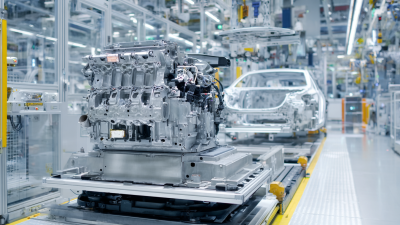
Innovative Examples of Automotive Injection Molding Applications in the Industry
-
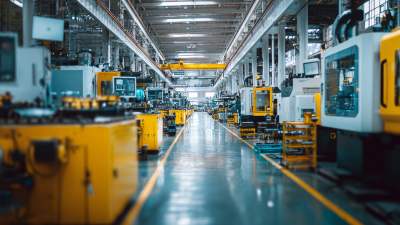
How to Choose the Best US Injection Molding Solutions for Your Manufacturing Needs
-
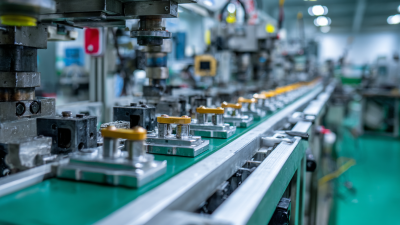
How to Identify Top Suppliers for Optimal Injection Molding Mold Design
-
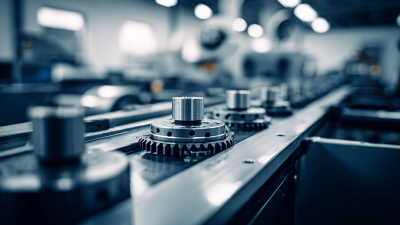
Exploring the Role of Import and Export Certifications in Best Mold Manufacturing
-
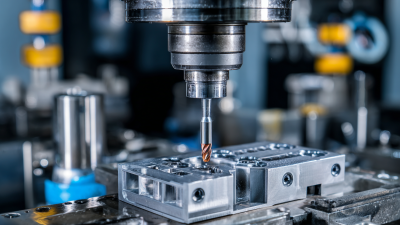
Leveraging Excellent After Sales Support for Cost Effective Future of Best Mold Design in Injection Molding
-

Mastering Precision Tooling Techniques for Maximum Efficiency and Quality

